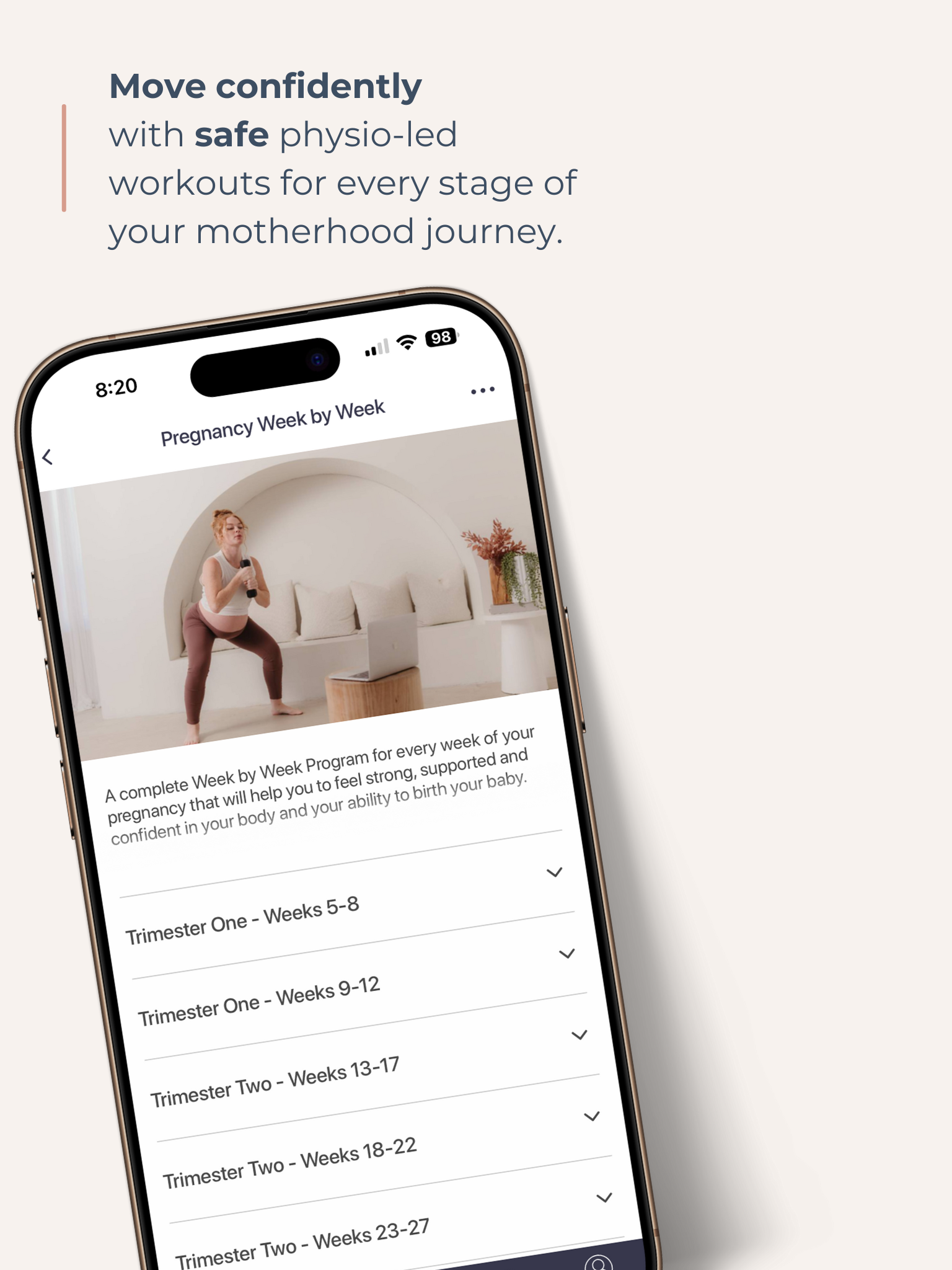“It’s not like it used to be…” Returning to sex and intimacy after a difficult birth experience

Written by Dr Rosie Pajak - Perinatal Psychologist and Founder of The Birth Healing Collective
Is your sex life not what it used to be? Well, in case you’re not talking about it with your friends, I can tell you that you’re not alone. Around 60% of new parents report sexual concerns that are causing them significant stress (1). That means the reality is that most new parents are struggling when it comes to their sex life.
There are practical challenges, of course – with less time and energy to invest in your relationship, it can become difficult to keep that romantic connection in place. Many women find that the physical demands of caring for a baby leave them ‘touched out’ by the end of the day, wanting space and silence instead of affection. You might also be adjusting to how your body looks and feels different after having your baby, whilst the physiological changes going on inside (thanks hormones!) can impact your level of spontaneous desire.
And when it comes to sex, we need to remember that our psychological well-being also plays a significant role.
The transition to motherhood is an intense and vulnerable time for our mental health.
Around one in five mums will experience postpartum depression, anxiety or other mental health challenges. I think it’s important to remember that many more mothers may not meet all the criteria for a clinical diagnosis but still experience significant emotional struggles during the postnatal period.
As mothers, we are experiencing huge changes in our relationships, identity, and sense of self during this time—all while trying to figure out how to be a mum and meet our baby’s needs as best we can.
If you are dealing with all of this after having experienced trauma during pregnancy or birth, this adjustment can feel even harder.
How does birth trauma affect sex and intimacy?
A third of all women experience their birth as traumatic. The impact of a traumatic birth experience can be far-reaching, affecting everything from breastfeeding and bonding to the relationship between parents.
Couples who have experienced a traumatic birth actually report lower levels of satisfaction with their relationship overall(2)., perhaps as the experience places immense stress on both partners. Some couples describe feeling emotionally detached, whilst others struggle with feelings of anger, guilt and blame. Many women feel misunderstood and unsupported by their partners, although research also suggests that dads can experience negative impacts for months, if not years, afterwards.
After a traumatic birth experience, sexual intimacy can trigger distressing memories, with some women and partners reporting flashbacks when intimacy is initiated. For others, the whole idea of having sex again raises fears of pregnancy. Many of the women I work with tell me that they have been avoiding sex due to their fear of having to go through the birthing process again.
On a purely physical level, sex can be painful after a birth injury. This can lead to a cycle of anxiety, tension and more pain. When this happens, it is understandably upsetting for both partners and sometimes results in couples avoiding intimacy altogether.
Although these challenges can feel insurmountable, it’s important to know that it is possible to get back to a happy and healthy sexual connection after birth trauma.

Tips for finding your way back to intimacy:
1. Give yourself time to heal – emotionally as well as physically
Getting the all-clear to return to sex at your six-week check does not necessarily mean you will feel emotionally or psychologically ready to resume intimacy. Try to lower your expectations of yourself, and allow yourself more time to adjust to the changes and challenges of parenthood.
2. Keep the lines of communication open with your partner
Unhelpful cycles can grow up between couples when one person feels pressured to return to intimacy, or the other feels rejected. Try to honestly let your partner know how you are feeling about sex right now, remembering that this is not forever! Make a plan to check in with each other regularly about it. Keeping this conversation on the table help both partners know returning to a pleasurable sex life is important to each of you.

3. Address trauma if the idea of sex carries a lot of anxiety
If you find yourself wanting to avoid sex due to memories of your birth experience or fear of giving birth again, you might benefit from some support to psychologically process your birth experience. There are specific therapies that have a good evidence-base for treating birth trauma, like EMDR (Eye-Movement Desensitisation & Reprocessing) therapy, which can help reduce the ongoing distress connected to a traumatic birth.
4. See a woman’s health physio if sex is painful
Recovering from a birth-related injury can affect both your confidence and enjoyment for sex for a time. I always recommend seeking out specific support from a women’s health physio to assess and support your physiological recovery.
With your partner, anxiety about sex triggering pain needs to be handled sensitively, but if you can talk honestly about it, this doesn’t need to become a barrier between you. Try to see these challenges as something to be temporarily adapted to, and perhaps even an opportunity to reconnect in new ways.
Take the pressure off – but commit to adapting and exploring together
Rather than waiting for desire to re-emerge by itself, many couples find it works best to agree a time when they will come together and simply commit to reconnecting physically. This also means you can plan some time alone beforehand to counterbalance those feelings of being ‘touched out’.
Remember that when there are bodily changes to get used to, confidence might take some time to return, and pleasure might not exist where it used to. Take the pressure off by remembering that sex includes far more than just penetrative sex. You can even take penetration off the table altogether and simply use the time to explore what each partner needs for intimacy to feel good going forward.
When sex is reframed in this way as a pathway to a better physical and emotional reconnection, it can become a positive way to connect amidst the challenges of parenthood.

So, what’s the first step you could take to start back on the pathway of more intimacy? Perhaps you could have a chat to your partner about this tonight – or maybe even send them this article.
Let them know honestly and sensitively how things are feeling for you… and see if you can commit to gradually exploring a pathway back to intimacy together.
Interested in more evidence-based information on psychological recovery after a difficult birth? Perinatal Psychologist Dr Rosie Pajak shares information and resources at The Birth Healing Collective. You can follow her @birth_healing_collective.

1. Schlagintweit, H. E., Bailey, K., & Rosen, N. O. (2016). A New Baby in the Bedroom: Frequency and Severity of Postpartum Sexual Concerns and Their Associations With Relationship Satisfaction in New Parent Couples. The Journal of Sexual Medicine.
2. Delicate A, Ayers S, Easter A, McMullen S. The impact of childbirth-related post-traumatic stress on a couple’s relationship: a systematic review and meta-synthesis. J Reprod Infant Psychol. 2018;36(1):102–15.
Get your Free Physio-led Pelvic Floor and CoreWorkouts
Download three free videos for either pregnancy or postpartum.




